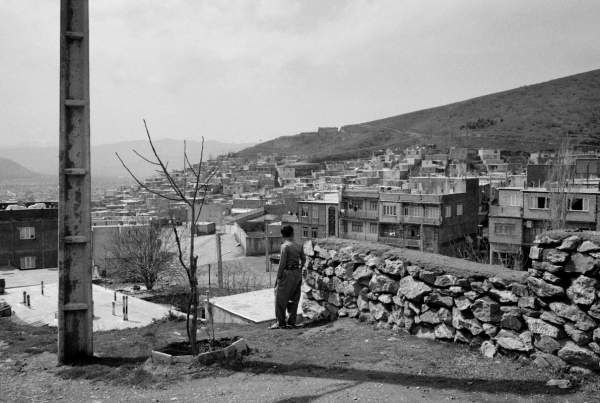The photography exhibition Imaginary Mountains by Linda Dorigo (Tolmezzo, 1983) opens Oct. 16-27 in Trieste at the Miela Theater.
A reflection on Kurdish identity in Iraq, Iran, Syria and Turkey. Linda Dorigo has constructed a narrative far from stereotypes, starting from a common basis of dialogue: mountains. Born and raised in an alpine region, Linda participatively involved communities who made drawings and maps, wrote poems, and donated photographs.
Mountain people, rough, brigands, ignorant. This is how, in the early 19th century, early travelers and Orientalist researchers in Mesopotamia described the Kurds. “The people of the mountains,” with their horses and rudimentary weapons, is the result of an exotic vision that, as decades passed, was introjected by the Kurds themselves.
Real or imagined, felt or unconscious, the mountains have become the pivot around which Kurdish identity revolves. Even today, under the pressure of political propaganda, when Kurds talk about their identity as an oppressed people they say “we have no other friends but the mountains.”
In recent years the narrative toward them has softened, elevating them to brave warriors and warriors in the fight againstIsis. But if the value of a people changes according to the importance geopolitics attaches to them, what has not changed in over 200 years is the relationship between the Kurds and the mountains.
Linda Dorigo began this project in June 2014, with the intention of constructing a narrative away from pre-existing stereotypes and those that have thrived with the rise of the Islamic State. To do so, she started from a common base of dialogue: the mountains.
In four years of travel and research between Iraq, Iran, Syria and Turkey, Linda Dorigo immersed herself in the stories of families, friends, boyfriends and children. Three-dimensional and laden with contrasts, the lives of these people are rarely touched upon by newspapers, and even less frequently do Kurds have the opportunity to express a personal worldview.
Fieldwork has included engaging communities in a participatory manner. Invited to reflect on the mountains, their identity, and the history of their land, Kurds made drawings, maps, wrote poems, donated photographs and archival materials. A choral narrative necessary to avoid falling back into a new narrative made “from the outside,” in which the protagonists themselves would find no voice.
For all information you can visit the official website of the Miela Theater or the website of the S/paesati Association.
Pictured: Linda Dorigo, Iran, the old city of Marivan
 |
| Reflections on Kurdish identity. Linda Dorigo's photographs on display in Trieste. |
Warning: the translation into English of the original Italian article was created using automatic tools. We undertake to review all articles, but we do not guarantee the total absence of inaccuracies in the translation due to the program. You can find the original by clicking on the ITA button. If you find any mistake,please contact us.